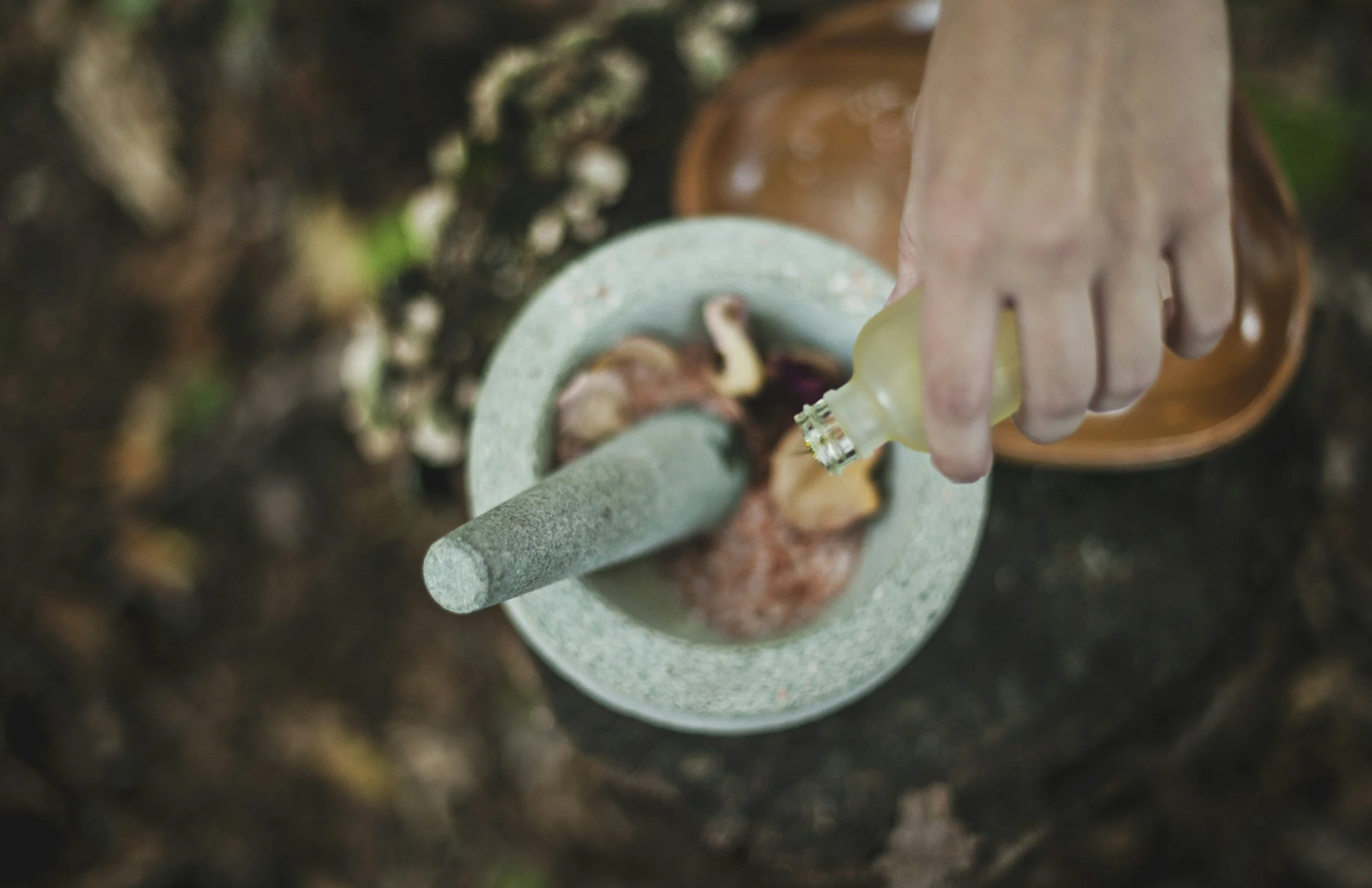How Do We Know Herbs Work?
It’s a question that lingers quietly in the back of many minds: Do herbs really work? Are they simply remnants of folk tradition and old wives’ tales, or do they actually bring balance and support to the body in tangible ways? As someone who works with herbs daily, I’ve asked this myself. I’ve seen how they can ease discomfort, restore calm, or support the immune system. But what evidence do we really have that they’re effective?
The truth is, herbs have been part of the human story since the beginning of time. They’re woven into Scripture, embedded in history, and confirmed by science in ways we don’t always realize. Let’s take a closer look at why we can trust that herbs are more than just tradition — they’re part of God’s design.
God’s Design: Herbs for the Service of Man
The Bible is clear: plants were given to us for food, healing, and life. Psalm 104:14 says, “He causeth the grass to grow for the cattle, and herb for the service of man.” In Ezekiel 47:12, we read of trees whose fruit is for food and whose leaves are for healing. From Genesis to Revelation, God’s Word affirms that what grows from the earth was made intentionally for our good.
When we use herbs, we’re not simply practicing superstition — we’re honoring creation as it was given. God wove into plants the nutrients, compounds, and properties that can support our bodies in times of imbalance. Herbs are not magical; they are natural tools designed by the Creator.
The Witness of History
Long before pharmacies and laboratories existed, people relied on the plants around them. Ancient Egyptian papyrus scrolls describe over 800 herbal medicines. Traditional Chinese medicine and Ayurvedic practices have thousands of years of recorded use of roots, leaves, and seeds. Indigenous peoples around the world developed rich traditions of plant knowledge, passed down through generations because those plants consistently worked.
Even Hippocrates, often called the father of modern medicine, emphasized food and plants as the foundation of healing: “Let food be thy medicine, and medicine be thy food.” These weren’t empty words. They were reflections of what people had already witnessed for centuries — that plants support the body’s ability to heal.
What Science Reveals
Modern science has given us language to describe what traditional herbalists have always observed. Plants are full of active compounds — alkaloids, flavonoids, tannins, glycosides, volatile oils — each with measurable effects. These constituents can soothe, protect, stimulate, or balance different systems in the body.
Pharmaceuticals themselves bear witness to this. Aspirin was inspired by salicin, a compound in willow bark that people had brewed into teas for centuries to ease pain and inflammation. The heart medicine digoxin comes from foxglove. Quinine, long used to treat malaria, was derived from cinchona bark. In fact, many modern drugs began as attempts to isolate and replicate the healing compounds of plants.
The difference is this: pharmaceuticals usually extract or synthesize one isolated compound, while herbs offer a full spectrum of compounds that work together synergistically. This can make herbs gentler and often more balanced, though sometimes less dramatic, in their effect.
Herbs vs. Pharmaceuticals: Two Different Tools
It’s important to recognize that herbs and pharmaceuticals are not enemies. They are different tools with different strengths. Pharmaceuticals can be life-saving in acute situations. But they often come with side effects, precisely because they are isolated and concentrated. Herbs, on the other hand, work more holistically. They support the body’s natural processes, nudge systems back toward balance, and provide long-term nourishment.
For example, ginger doesn’t just “fix nausea.” It warms circulation, stimulates digestion, and offers anti-inflammatory support. Chamomile doesn’t only calm the nerves — it soothes digestion, eases tension, and supports restful sleep. Herbs are multi-dimensional in a way that pharmaceuticals rarely are.
Evidence Beyond the Lab
One of the criticisms you’ll hear is that not all herbs have “enough clinical studies” to prove their effectiveness. This is true — but it’s also telling. Clinical studies are expensive, and because plants cannot be patented, there is little financial incentive to study them at the same scale as drugs.
But lack of funding does not equal lack of evidence. Centuries of consistent human use are a form of evidence in themselves. When cultures around the world, separated by geography and language, use the same herbs for the same purposes — that’s not coincidence. That’s testimony. And modern research, when it is done, often confirms what herbal traditions have always known.
So, Do Herbs Really Work?
The answer is yes — not as quick fixes or miracle cures, but as steady allies. They work because God designed them with compounds that interact with our bodies in measurable ways. They work because countless generations before us have used them with consistent results. They work because science has confirmed, again and again, that what grows from the soil can bring balance, restoration, and healing.
Herbs remind us that healing doesn’t always come from a pill bottle. Sometimes, it comes from creation itself — a reminder that the One who formed our bodies also provided the plants that help us flourish.
Closing Thought
When you sip a cup of chamomile tea, rub a salve into sore muscles, or brew a pot of chai, you are participating in something ancient and purposeful. Herbs are not a trend. They are gifts — designed, time-tested, and still proving their worth today.
If you’re ready to bring that goodness into your own rhythm of life, I’d love for you to explore our herbal tea blends in the shop — each one thoughtfully crafted to support balance, wellness, and the everyday beauty of slowing down with a cup of tea.

